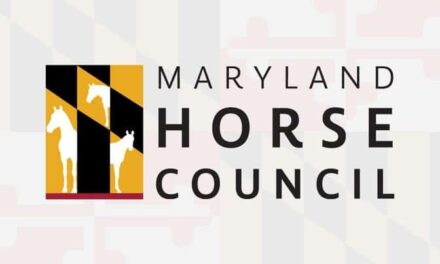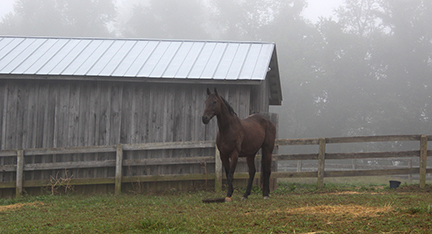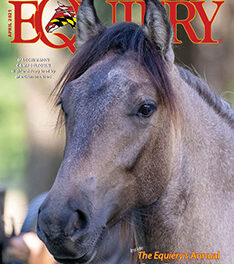The 436th session of the Maryland General Assembly began on January 13, 2016 and closes on April 11. To date, there have been 1,104 bills introduced in the Senate and 1,575 in the House. And the Maryland Horse Council attempts to review all of them for any potential or significant impact on the horse industry or in the equestrian community. For more on current bills, please scroll down.
On Tuesday, February 23, members of the Maryland equestrian community are invited to participate in Maryland Horse Industry Day in Annapolis, which begins at 1 p.m. and concludes with a cocktail reception. Speakers during the day include (but are not limited to)
Senate President Mike Miller; Senator JB Jennings (currently owns a boarding stable with his wife, and is a former feed store owner); Senator Joan Carter Conway; David Brinkley, former pony clubber and Secretary of the Department of Budget & Management; Joseph Bartenfelder, Secretary of Agriculture; Mark Belton, Secretary of the Department of Natural Resources; Kelly Schulz, Secretary of the Department of Labor & Licensing.
Click here to learn more or to register.
During the day, members of the Maryland equestrian community will discuss the following legislative priorities with elected and appointed officials:
Protecting, Promoting & Maintaining Open Space
Promote the maintenance and preservation of open space, with equine and multi-user access, including the use of State Highway Administration funds to develop and maintain a statewide trail network.
Equine Welfare
Protect animal welfare with strong penalties for conviction of animal cruelty and neglect, legislation banning the sale or transport of equines for human consumption, and support for programs that develop humane end of life options for equines.
Supporting Horse Operations
Support horse operations as part of agriculture; maintaining the legal status of horses as livestock and encouraging a business, tax and environmental climate favorable to the owners of horses, horse farms and equine-related businesses.
Promoting Educational Equine Programs
Promote programs for youth and equine therapy for mental physical and veteran disabilities.
Revitalize Horse Racing
Revitalizing the Maryland racing industry through maintained revenues, funding for the renewal of facilities, promotion of Thoroughbred and Standardbred breeding and racing, and growth of Arabian racing at Maryland tracks.
CURRENT LEGISLATION
Here are just a few bills of the 2,600+ that MHC is monitoring this session:
Vets & Compounded Drugs
The Maryland Horse Council is supporting Senate Bill 614 and its cross-filed cousin House Bill 1462 which would allow vets to compound drugs in certain situations, provided the bill is amended for clarity. There is concern that the bill would inadvertently redefine horses legally. Currently, horses are legally defined as livestock, but this bill could inadvertently include them in the definition of companion animals. But the bill would also specifically exclude animals used in agriculture, and horses are currently legally considered to be under the definitions applying to agriculture and livestock. MHC would like to see the language clarified and to see livestock included in the scope of the bill. All that said, there is still concern that the bill does not comply with federal compounding laws.
Increasing Penalties for Animal Crimes
Senate Bill 722 would increase the penalties for those convicted of crimes related to animals; penalties may include prohibition against owning animals in the future. However, the Maryland Horse Council has found it troubling that this bill would likewise criminalize vets who fail to notify authorities if they suspect abuse or neglect.
Hunting-Related Bills
The Maryland Horse Council is seeking to combat the flurry each year (for the last 12 years) of what are called “local courtesy bills” which expand hunting by a day or two in small, geographic regions by brokering a statewide compromise that would ensure the fair use of shared natural resources among all users groups. In the meantime, the expected annual flurry of local Sunday deer hunting with firearms bills have been entered, and MHC is monitoring them.
Maryland Equestrian Day
Delegate Seth Howard will also speak on HB 660, which he sponsored. The bill would require that each year the Governor declare the final race of the Triple Crown (the Belmont) to be Equestrian Day in Maryland. The Equiery is not certain why we would want it to be a day to celebrate riders instead of horses, but it still sounds like a nice idea for the equestrian community.
Funding Program Open Space
MHC is actively supporting SB 383 and HB 462, which would restore funding for Program Open Space.
Tax Credits for Preservation and Conservation
House Bill 276 alters the existing preservation and conservation easement income tax credit by allowing (1) a member of pass-through entities to claim the credit and (2) easements conveyed to the Department of Natural Resources (DNR) to qualify for the credit. The bill specifies that the sum of all credits claimed by members of a pass-through entity in a taxable year may not exceed $5,000. The Comptroller must adopt regulations to specify the procedures for a member of a pass-through entity to claim the credit. The Maryland Farm Bureau is actively supporting this bill, and MHC is monitoring.
Perpetual Conservation Easements
Senate Bill 371 would provide a subtraction modification under the Maryland income tax for the first $500,000 in proceeds from the sale of a perpetual conservation easement on real property in the state. Under current law when a farm family decides to preserve their farm by selling the development rights, the proceeds from that sale have to be claimed as personal income tax. Typically, this moves them into a much higher tax bracket, which in turn has them paying a higher percentage of their income. This tax increase is not only on the proceeds from the sale of the easement, but also on the entire yearly income. This tax increase is in addition to what the family has to pay in Federal Capital Gains tax. This bill would encourage farm families to preserve the farm for future generations. MFB supports this bill.












